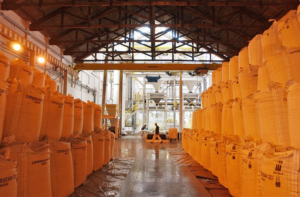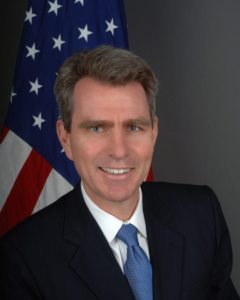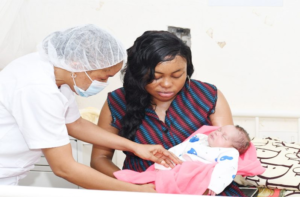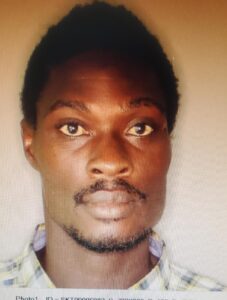Byron-Nisbett cautiously praises Drew’s honorarium move
FORMER HEALTH MINISTER AKILAH BYRON-NISBETT HAS SHOWERED PRAISES on the Terrance Drew administration for its decision to provide financial incentives to frontline healthcare workers who braved the contagious and deadly corona virus outbreak to treat COVID-19 patients in St Kitts and Nevis.
She cautioned beneficiaries though, to use the windfall wisely, and the governing St Kitts and Nevis Labour Party (SKNLP) to maintain fiscal prudence given fears of a likely global recession -sooner rather than later.
“I would be happy for anyone to get a ‘lil’ (little) extra bonus to add to their savings at the moment because they need the money. Any little money you can get would be welcomed. But if you are objective and you looking at it from the government side of things, we also have to be pinching our dollars,” Byron-Nisbett counselled prospective recipients.

Hopefully, they would put it into a savings especially when the world is predicting what will be happening in the next few years
To the two-month-old SKNLP government which ousted her Team Unity government under the leadership of Dr Timothy Harris from power last August, the former health minister advised they keep a tab on the national coffers and be guided by the fortunes of the country’s ongoing fiscal evolution.
“They should look at the data,” and be extremely prudent in its spending considering some dire forecast for the region by many Caribbean and international agencies, the former minister said.
She fears that the payout may place the economy under pressure.
“We do not have natural resources to rely on to say that we have some kind of income coming back in. We do not know where the CBI (Citizenship By Investment) is going. We see the debate going in the EU (European Union) and even in the US and we need to start thinking ‘how do we have enough so we don’t start over-spending or extending ourselves financially so that when the hard times hit we are able to manage thorough it without too much debt (and) without having to turn to the IMF (the International Monetary Fund) because we must be able to have life in St Kitts and Nevis,” the former minister counselled.
The Caribbean Development Bank (CDB) projected gross domestic product (GDP) growth of 9.1 percent across its 19 Borrowing Member Countries (BMCs) for this year. This is underpinned by an anticipated surge in the GDP of commodity-exporting economies “by an estimated 17.5 percent on account of strong growth in Guyana (47.5 percent), emanating from increased oil and gas production, and a resurgence in energy production in Trinidad and Tobago as supply-side constraints are alleviated. Higher international prices for crude oil should translate into revenue windfall,” according to publicly available information.
A US State Department report said the pandemic “significantly reduced the economic gains St. Kitts and Nevis had made in recent years.”
“The impact of the pandemic on tourism, a mainstay of St. Kitts and Nevis’s economy that generates over 60 percent of GDP, has had ripple effects across the economy. The government has introduced measures to protect workers and key economic sectors. After the introduction of vaccines in 2021 the government lifted a strict quarantine for visitors, effectively rebooting the tourism industry,” the State Department said.
Nevertheless, the International Monetary Fund (IMF) had predicted a real GDP growth of 10 percent this year “effectively reversing this contraction,” brought on by the onslaught of the deadly corona virus which killed more than 6.6. million persons worldwide.
In her exclusive with this media house, Byron-Nisbett said providing healthcare was more demanding at community centres and not hospitals.
“Our hospitals were not overrun. Yes, we had some COVID patients there, but it was not in the volumes you would have seen in other parts of the world. It is our community nurses that were really pushing out, and they were paid accordingly for the time and effort that they took to do the work,” she maintained.
Byron disclosed that while workers are eager and in need of the money, the Drew administration should examine all sides of the issue before venturing to pay out the monies.
“We have to think (about) down the road. (If) a recession hits, where we are headed?” she queried rhetorically.
With no manufacturing base to lean on, and saddled with a hefty annual import bill, Byron-Nisbett, an information technology (IT) specialist, predicted the twin-island’s import bill is bound to balloon especially given manipulated erratic production, and soaring global oil prices.
“When you think about the amount of fuel that SKNEC has to use, if SKNEC has to transfer the fuel cost into electricity cost, we are going to be in some serious problems. So, we have to consider all of those things when we are making decisions. We can’t make decisions in a vacuum, and in isolation,” Byron-Nisbett counselled.










